
-
 Springboks ring changes for Italy clash
Springboks ring changes for Italy clash
-
How embracing 'ickiness' helped writer Szalay win Booker Prize

-
 World oil market 'lopsided' as supply outpaces demand: IEA
World oil market 'lopsided' as supply outpaces demand: IEA
-
Alldritt 'takes up the torch' for France against Fiji after South Africa loss

-
 Hitler likely had genetic condition limiting sexual development: research
Hitler likely had genetic condition limiting sexual development: research
-
Zelensky sanctions associate as corruption scandal engulfs Kyiv

-
 Germany agrees to keep military service voluntary
Germany agrees to keep military service voluntary
-
Japan PM Takaichi says she sleeps only 2-4 hours a night
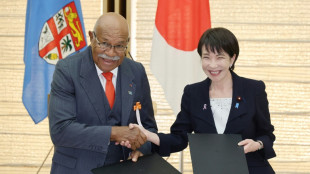
-
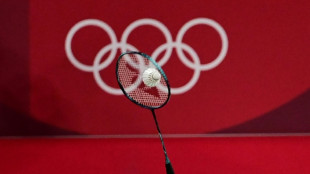 South Africa announces plan to bid for Olympic Games
South Africa announces plan to bid for Olympic Games
-
Juan Ponce Enrile, architect of Philippines martial law, dies at 101
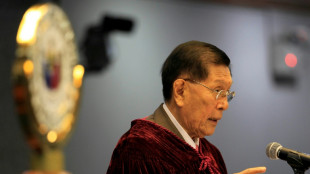
-
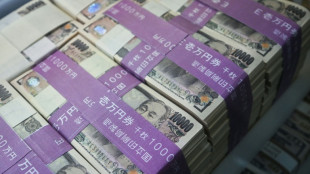 Stocks waver as US government shutdown ends
Stocks waver as US government shutdown ends
-
Google to pay millions to South African news outlets: watchdog

-
 EU probes Google over news site rankings despite Trump threats
EU probes Google over news site rankings despite Trump threats
-
Pakistan grants lifetime immunity to president, current army chief

-
 South Africa's Bavuma says winning in India top ambition
South Africa's Bavuma says winning in India top ambition
-
Alldritt back to captain France against Fiji after South Africa loss

-
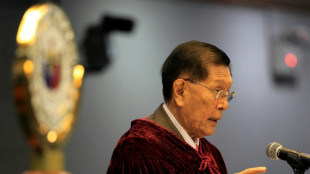 Juan Ponce Enrile, architect of Philippine martial law, dies at 101: daughter
Juan Ponce Enrile, architect of Philippine martial law, dies at 101: daughter
-
'Ready' Rees-Zammit back in Wales's starting team to face Japan

-
 Spinners decide Tests in India, Gill says before South Africa opener
Spinners decide Tests in India, Gill says before South Africa opener
-
K-pop group NewJeans ends feud with record label ADOR

-
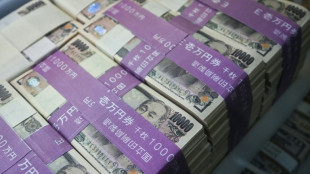 Asian stocks rise with focus on Fed, tech as US government reopens
Asian stocks rise with focus on Fed, tech as US government reopens
-
UK economic gloom deepens before budget
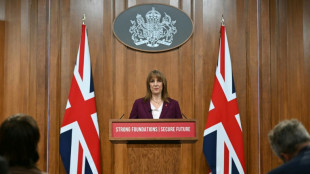
-
 Scott Barrett returns to skipper All Blacks against England
Scott Barrett returns to skipper All Blacks against England
-
Burberry narrows first half loss on turnaround plan
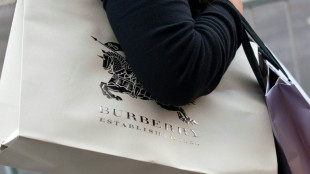
-
 Sri Lanka to stay in Pakistan after bomb, games move to Rawalpindi
Sri Lanka to stay in Pakistan after bomb, games move to Rawalpindi
-
Zanzibar women turn to sponge farming as oceans heat up

-
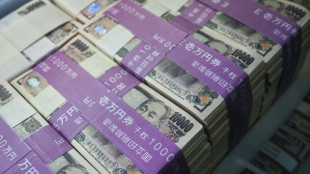 Stocks rise with focus on Fed, tech as US government reopens
Stocks rise with focus on Fed, tech as US government reopens
-
Curry lifts Warriors over Spurs, Thunder rout Lakers, Jokic shines

-
 Mushroom material takes on plastic packaging at Belgian start-up
Mushroom material takes on plastic packaging at Belgian start-up
-
India's top tennis player says denied China visa
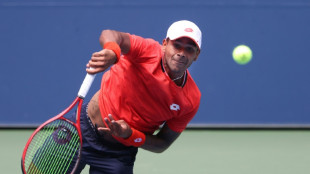
-
 In Kyrgyzstan, world's largest natural walnut forest thins away
In Kyrgyzstan, world's largest natural walnut forest thins away
-
TV soaps and diplomacy as Bangladesh and Turkey grow closer

-
 Striking Boeing defense workers to vote on latest contract
Striking Boeing defense workers to vote on latest contract
-
Australia's opposition ditches commitment to net zero emissions
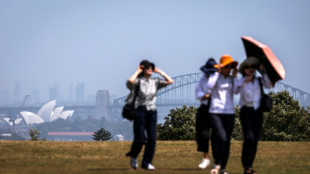
-
 Duffy takes four as New Zealand crush West Indies to seal T20 series
Duffy takes four as New Zealand crush West Indies to seal T20 series
-
South Korea halts flights for college entry exam
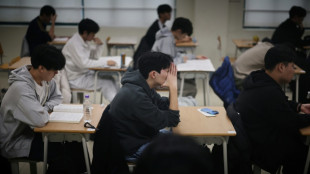
-
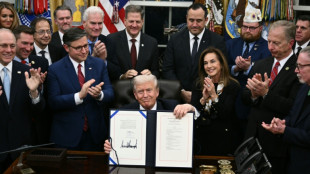 Trump signs bill to end record-breaking US shutdown
Trump signs bill to end record-breaking US shutdown
-
EU lawmakers to vote on unpicking green business rules
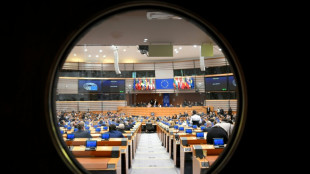
-
 Smith says England speed kings could struggle in Ashes
Smith says England speed kings could struggle in Ashes
-
Stocks stutter with focus on Fed, tech after US reopen vote
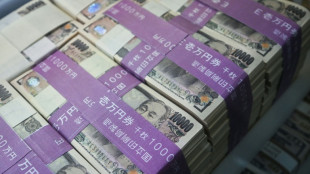
-
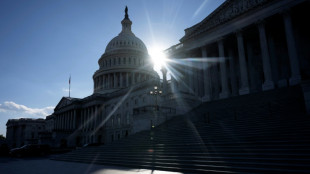 Record-breaking US shutdown ends as political fallout begins
Record-breaking US shutdown ends as political fallout begins
-
France marks decade since harrowing Paris attacks

-
 Skubal, Skenes win MLB Cy Young Awards for top pitchers
Skubal, Skenes win MLB Cy Young Awards for top pitchers
-
Record rains turn Argentina's farm-filled Pampas plains to wetlands
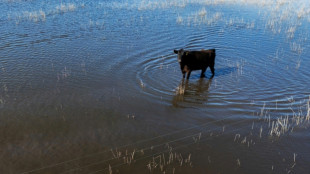
-
 Solar storm brings new chance of vivid auroras, signal disruptions
Solar storm brings new chance of vivid auroras, signal disruptions
-
Gauff and Fritz back for United Cup against Swiatek's Poland

-
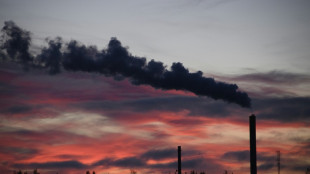 World's fossil fuel emissions to hit new record in 2025: study
World's fossil fuel emissions to hit new record in 2025: study
-
US jury: Boeing owes $28 mn to family of Ethiopian Airlines crash victim

-
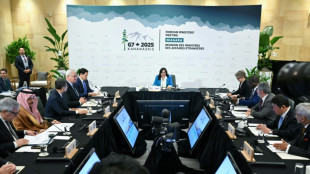 G7 calls for urgent Ukraine ceasefire, de-escalation in Sudan
G7 calls for urgent Ukraine ceasefire, de-escalation in Sudan
-
Bayern stun Arsenal, Man Utd sink PSG in Women's Champions League


EU probes Google over news site rankings despite Trump threats
The EU launched a fresh investigation into Google Thursday over suspicions the US giant is pushing down news outlets in search results, despite retaliation threats from US President Donald Trump.
The European Commission said Google is demoting media publishers' websites and content in search results when they include content from commercial partners, such as sponsored editorial pieces.
"We are concerned that Google's policies do not allow news publishers to be treated in a fair, reasonable and non-discriminatory manner in its search results," EU antitrust chief Teresa Ribera said.
"We will investigate to ensure that news publishers are not losing out on important revenues at a difficult time for the industry," Ribera said.
The probe under the EU's online competition rules known as the Digital Markets Act (DMA) comes after Trump warned this year he would slap tariffs on countries he accuses of targeting US tech companies.
The sweeping EU law seeks to rein in the world's biggest tech firms by forcing them to open up to competition in the 27-country bloc.
Google slammed the "misguided" probe as "without merit", defending the search platform's policies as necessary to protect users from spam.
"This surprising new investigation risks rewarding bad actors and degrading the quality of search results," Google Search chief scientist Pandu Nayak said in a blog post.
- Avoiding spammy search results -
The EU will probe whether Google's anti-spam policy is fair and transparent for publishers, though it is not questioning the measure as a whole.
"This policy appears to directly impact a common and legitimate way for publishers to monetise their websites and content," the commission said.
The EU's fear is that Google's bid to protect users from spam could impact publishers' "freedom to conduct legitimate business" at a difficult time for news media, with advertising revenue down and many users preferring video content.
While Brussels believes publishers have lost revenue due to the policy, it did not have figures to detail how much, and would not comment on which media outlets.
Google said it seeks to protect users from the risk of spammers taking advantage of the good ranking of publishing outlets, in order to trick them into clicking on low-quality content.
The commission said it will seek to conclude the probe within 12 months.
- Google in EU crosshairs -
Google already faces heavy scrutiny from EU regulators.
The EU slapped Google with a massive 2.95-billion-euro fine in September, which drew an angry rebuke from Trump and more tariff threats.
Brussels also accused Google of treating its own services more favourably compared to rivals as part of a DMA probe launched in March 2024.
And at the same time it said the Google Play app store prevented developers from steering customers outside the store to access cheaper deals.
If DMA breaches are confirmed, the law gives the EU the power to impose fines of up to 10 percent of a company's total global turnover.
This can rise to up to 20 percent for repeat offenders.
L.AbuTayeh--SF-PST
